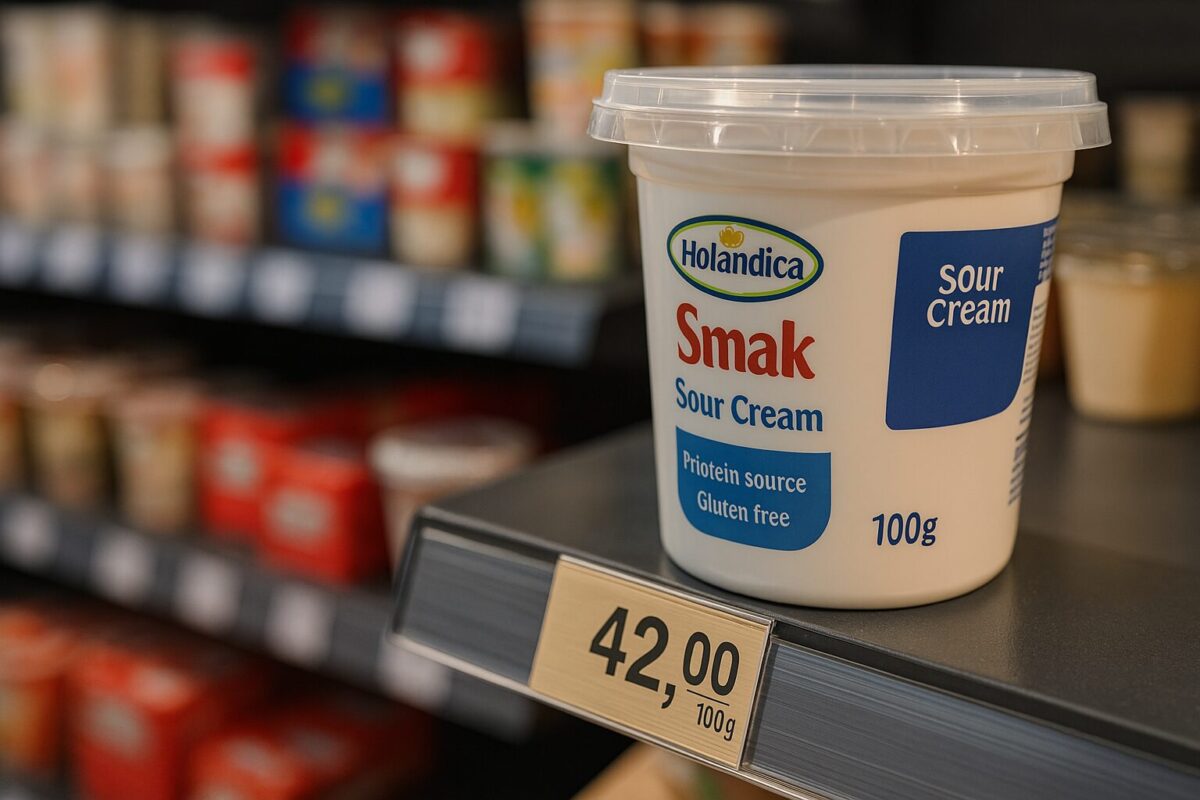
Misleading 100g Pricing: How Supermarkets Manipulate You — and What the Law Says
It looks like 42 UAH but you end up paying 420. Why misleading labeling is more than a mistake, and how to protect your rights as a consumer
Picture this: you’re shopping for groceries, and you spot a big tub of yogurt. The price tag says “42 UAH.”
Looks affordable, right? You grab it without much thought. But when you get to the checkout it rings up as 420 UAH. Confused, you ask: “But wasn’t it 42?”
The cashier shrugs: “That was for 100 grams. The tub is 1 kilogram.”
This isn’t a misunderstanding. It’s not just annoying. It’s a violation of consumer rights and a surprisingly common one across Ukraine’s retail chains.
In this article, we break down what’s happening, what the law says, and most importantly what you can do about it.
Why “Price per 100g” Can Be Misleading
So why does this trick work?
Because most shoppers glance quickly at the large number. Few pause to calculate or double-check if the price is for the full item or just a fraction.
But the product say, a sealed yogurt tub or a prepacked cheese block isn’t sold by weight at checkout. It’s sold as a single, prepacked unit.
That means showing a price per 100 grams with no price for the full item creates a false impression. You think you’re paying 42. But the actual charge is ten times higher.
That’s not a pricing strategy. That’s deception and it violates Ukrainian law.
What Does the Law Say?
Under the Law of Ukraine “On Consumer Protection”, every buyer has the right to:
- truthful, timely, and accessible information about a product (Article 15);
- make an informed and deliberate purchasing decision.
If an item is prepackaged and sold in fixed units (like a sealed 1 kg container), then the price must be clearly stated for the entire item — not just per 100 g.
Any per-gram price must be shown in addition, not instead.
This is also reinforced by Cabinet Resolution №833 and national technical regulations on price labeling.
If the tag only shows the 100g price for a sealed product — that’s a breach.
Common Scenarios That Violate the Law
- Fixed-weight item, but price shown only per 100 g
- E.g. a sealed 500g sour cream tub labeled “19.90 UAH/100g” — but no total price.
- The consumer is unaware of the real cost.
- Mismatch between price tag and final receipt
- Shelf says “49.90 UAH” (per 100g), checkout says “499 UAH” (for the full kilo).
- The customer was clearly misled.
- Weight not aligned with displayed price
- Item weighs 870 g, but price is per kg, without stating the real item cost.
- This distorts the actual price.
Each of these examples is legally questionable at best, and in some cases — directly illegal.
What Penalties Apply?
Under current Ukrainian law, businesses may face:
- Administrative fines — up to 30 times the non-taxable minimum (under the Code of Administrative Offenses, Article 155);
- Consumer protection inspections — including potential fines, sanctions, and forced re-labeling;
- Civil liability — for monetary damages caused by misleading practices (under Article 22 of the Consumer Protection Law).
Sellers are obligated to correct pricing information. If they don’t — consumers can demand action.
What Can You Do If It Happens to You?
1. Take Photos
- Document the price tag, packaging, product label — especially the weight.
2. Keep the Receipt
- It’s your evidence for any complaint.
3. File a Complaint with the State Service on Food Safety and Consumer Protection
- Website: https://dpss.gov.ua
- Toll-free hotline: (044) 279-12-70
- E-mail: [email protected]
In your complaint, include:
- store address, date, and time of purchase;
- description of what happened;
- attach photos and receipt.
4. Report It to Store Management
- It might not always help — but you have the right to request a price correction.
Revelant
Sample Complaint Text (Translated):
I, [Full Name], made a purchase on June 14, 2025 at the “Fora” store located at [address]. The price tag on a 1kg yogurt package stated “42 UAH/100g,” with no total price displayed. The product is sold only in sealed packaging, not by weight.
This misled me and violates Article 15 of the Law of Ukraine “On Consumer Protection.”
I request a formal inspection and a response in accordance with the law.
Why This Matters — Even If It’s “Just a Few Hryvnias”
This is about trust.
When stores use small-print or intentionally vague labels to appear cheaper than they are, they are disrespecting their customers — and breaking the law.
Your rights as a consumer aren’t optional. And silence is an invitation for further abuse.
A price tag is more than a sticker. It’s a contractual offer — and it must be honest.
If you’ve been misled, you have every right to:
- ask for corrections,
- report the issue,
- demand accountability.
Retailers have no right to hide real prices behind math tricks.
And consumers have every right to demand clarity, accuracy, and fairness — not just from the law, but from everyday shopping.
Let’s make sure that “42” really means 42 — not 420.















